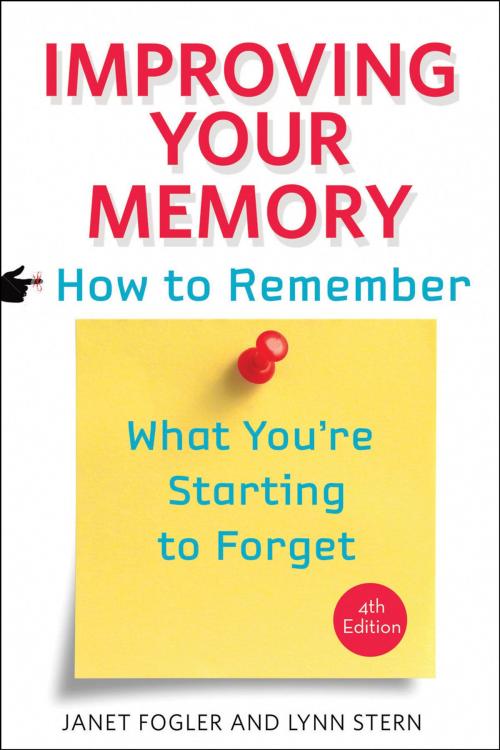Improving Your Memory
How to Remember What You're Starting to Forget
Nonfiction, Health & Well Being, Medical, Specialties, Geriatrics, Health| Author: | Janet Fogler, Lynn Stern | ISBN: | 9781421415710 |
| Publisher: | Johns Hopkins University Press | Publication: | November 15, 2014 |
| Imprint: | Language: | English |
| Author: | Janet Fogler, Lynn Stern |
| ISBN: | 9781421415710 |
| Publisher: | Johns Hopkins University Press |
| Publication: | November 15, 2014 |
| Imprint: | |
| Language: | English |
In the years since the previous edition of Improving Your Memory was published, technology has dramatically changed how we keep track of life’s many details. Appliances and car lights turn themselves off, smartphones and computers remind us of appointments, and Google lets us search for the information that we can’t remember. Still, we grow frustrated and anxious when words won’t come, when we misplace items, or when we forget meetings, birthdays, names.
University of Michigan social workers Janet Fogler and Lynn Stern have completely updated their friendly and usable guide to memory improvement techniques. Recognizing that people worry something is wrong with them when they forget things, Fogler and Stern suggest that the antidote to worry is taking positive actions to help us remember what we want to remember. They provide readers with tools for understanding and improving memory, including sixteen helpful exercises. Simple techniques like writing information down, creating a catch word or phrase, altering something in your environment, and reviewing details in advance can put you actively in charge of retrieving information more easily.
As in previous editions, Improving Your Memory reinforces memory techniques through real-life examples. This accessible handbook also discusses how memory works; how it changes with age, stress, illness, and depression; and why people remember what they do. Many readers will see immediate improvement in their memory after reading the book.
In the years since the previous edition of Improving Your Memory was published, technology has dramatically changed how we keep track of life’s many details. Appliances and car lights turn themselves off, smartphones and computers remind us of appointments, and Google lets us search for the information that we can’t remember. Still, we grow frustrated and anxious when words won’t come, when we misplace items, or when we forget meetings, birthdays, names.
University of Michigan social workers Janet Fogler and Lynn Stern have completely updated their friendly and usable guide to memory improvement techniques. Recognizing that people worry something is wrong with them when they forget things, Fogler and Stern suggest that the antidote to worry is taking positive actions to help us remember what we want to remember. They provide readers with tools for understanding and improving memory, including sixteen helpful exercises. Simple techniques like writing information down, creating a catch word or phrase, altering something in your environment, and reviewing details in advance can put you actively in charge of retrieving information more easily.
As in previous editions, Improving Your Memory reinforces memory techniques through real-life examples. This accessible handbook also discusses how memory works; how it changes with age, stress, illness, and depression; and why people remember what they do. Many readers will see immediate improvement in their memory after reading the book.















